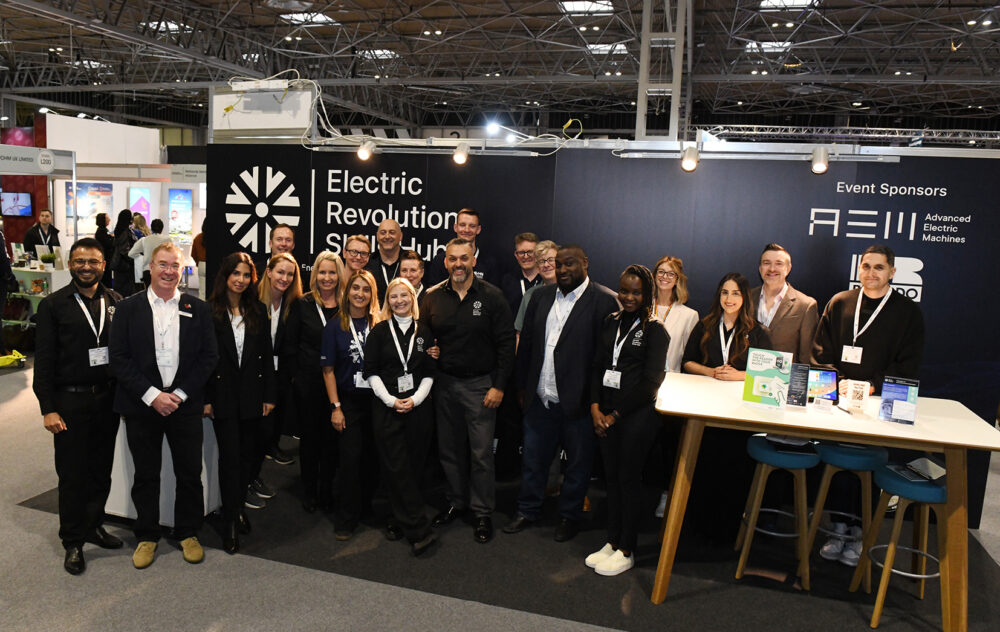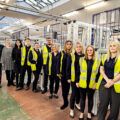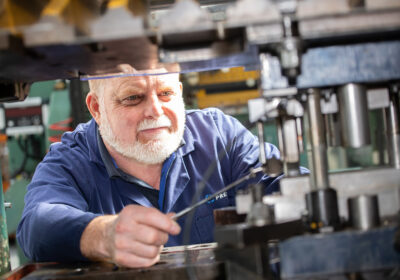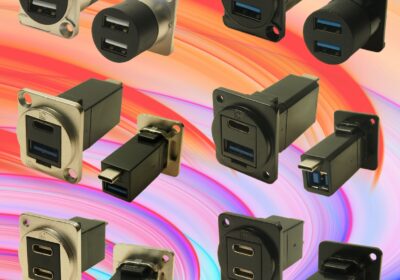Hundreds of delegates, 17 industry experts, keynote speeches, panel discussions and interactive workshops…there was a lot to take from the ERS Hub’s Annual Conference 2024…
Inclusivity was the name of the game for this year’s Electric Resolution Skills Hub (ERS) annual conference, with the decision made to take it on the road and host it at the Advanced Engineering Show in Birmingham that attracted 9000 people.
The logic was simple…the electrification skills community is growing and growing fast, yet the race to accelerate its development is real and the Advisory Board felt that co-location at a premier industrial show would open up our sector to new participants.
It didn’t disappoint. Over the course of two days last week, we estimated that hundreds of people either attended keynote talks, best practice sessions, landscape discussions and interactive workshops, or engaged with the ERS Hub team at our nearby stand.
Many of this number were new faces and this was important. If our rapidly emerging sector is going to hit the workforce and talent requirement we need to lead the world, then we need to open it up to the masses. This includes the next generation of workers, this includes people thinking of switching careers, this includes those in hard-to-reach groups, and it includes existing engineers looking to retrain.
This four-strand approach was reiterated throughout many of the sessions, whether it was Advanced Propulsion Centre’s Philippa Oldham emphasising the importance of partnerships to bring fresh talent into electrification or LaRaine Foden of Advanced Electric Machines exploring strategies to attract, retain and upskill.
Page Group’s Matt Devine also provided an insight into Talent Trends and Understanding Career Moves, a fascinating insight into some of the challenges electrification faces when trying to attract people.
He explained that just 8% of people involved in engineering are looking to actively move jobs currently, whilst candidates are now seeking much more than competitive salaries. They’re prioritising technical development, job security, work-life balance and a desire to make a real difference.
Excitement
Evident across the two days was a palpable excitement around what the Electric Revolution Skills Hub is achieving.
In less than eighteen months, it has gone from a high-profile launch and exciting concept to the go-to place for careers and skills development in UK electrification.
More than 180,000 unique visits have been made to ershub.co.uk in that time, either to search for one of the thousands of jobs listed, the hundreds of training programmes uploaded or to access the PEMD Body of Knowledge – the holy grail for defining competences and career paths. The Electrification Self-Assessment Tool is also providing a valuable benchmark for identifying skills gaps.
However, there is lots of work still to be done, especially around future focused-learning and the need for adaptability to new electrification technologies and skills.
One of the best attended sessions was the Panel Session on Pragmatic Approaches to Electrification Skills Shortages and this very point was on the agenda.
The common thread was the need for multi-faceted training and to look past the sector just being about batteries, a point made by E.ON’s Sean Holgate in his passionate explanation of the firm’s Net Zero Academy and how it is looking to broaden the talent pipeline.
Professor Spencer Salter, Director of Research and Innovation at JLR, later told the audience: “Electrification involves more than just “putting a battery in a car”. The shift requires extensive upskilling within the workforce, and moving forward, it’s about driving efficiency and refining skills for better results.”
An exciting development to address this train of thought was announced on Day 2, with Ian Trueman lifting the lid on Contech’s bespoke High Voltage Training Programme.
This 22-week course, which has been developed in partnership with OEMs and tier 1s, is open to anyone and will bridge the gap between academia in the workplace, allowing candidates to transition quickly into our industry.
“The syllabus has been written to be flexible so people can learn at their own pace in modules, taking pit-stops to prove their competences,” explained Ian.
“We’re utilising Contech’s state-of-the-art training facilities and XR Learning for delivery and successful learners will leave with an IMI Level 4 accreditation – meaning you can work immediately on high voltage vehicles. 600 engineers could be created in Year 1, with the aim of 3000 going through annually by 2030.”
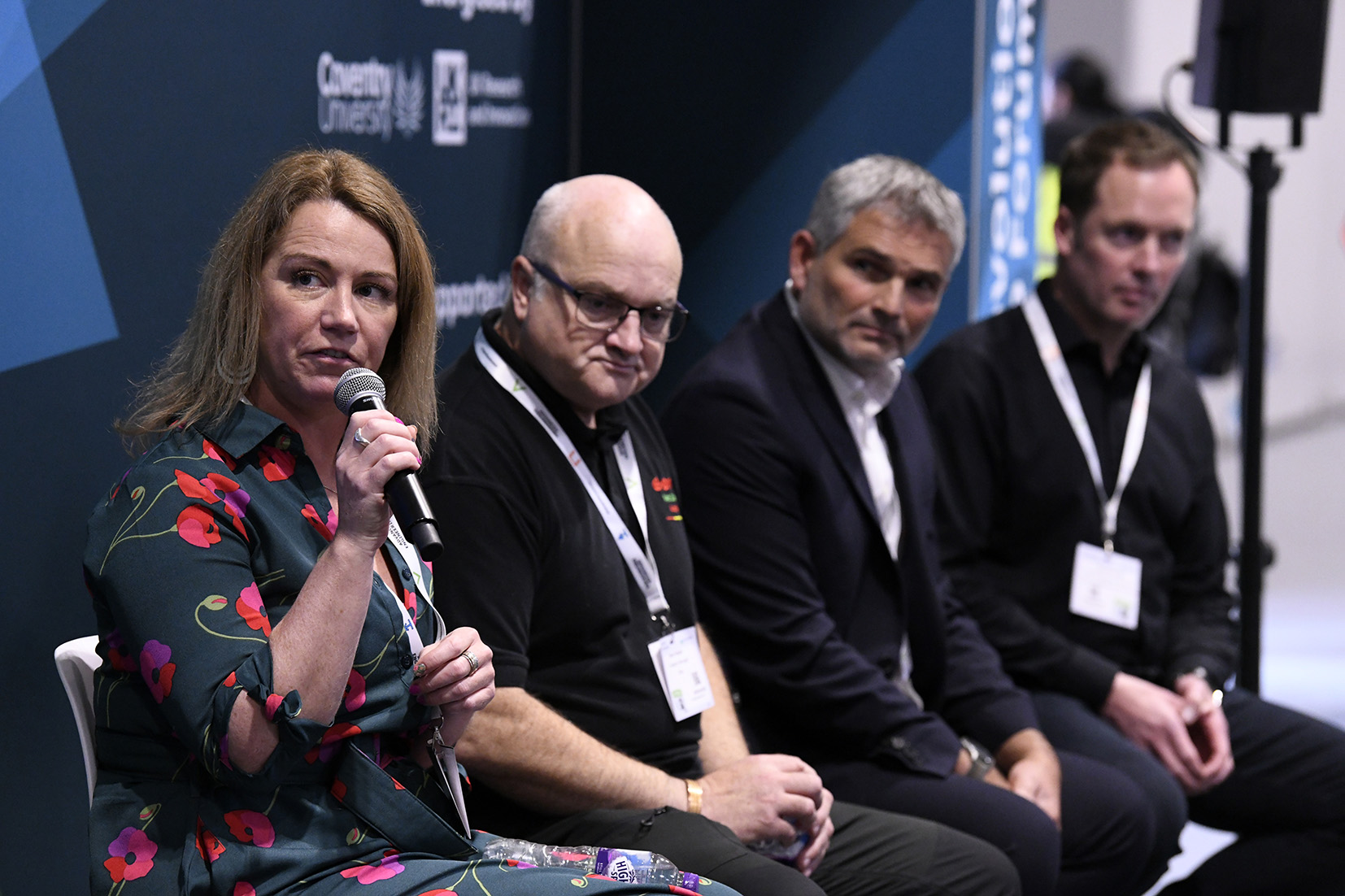
Alignment
Whilst a lot of the focus was on learners and recruitment, there were also some telling trends to come out of the training provider and education landscape.
ERS Hub’s Richard Lane and James Shuttleworth presented some new research using data gathered from the hub, which highlighted potential underrepresentation of non-HE/FE Training providers – a missing and vital contributor to skill building.
There were significant regional disparities also revealed, with the gap between demand for skilled workers and available courses varying significantly across different areas (more on that in a later news story).
To address these challenges, ERS Hub and our partners will aim to increase collaboration with both course providers and employers. By fostering open dialogue, we can better understand specific skill demands and ensure training is aligned with real-world needs. There’s a clear demand for electrification skills across industries – let’s work together to build pathways that meet it.
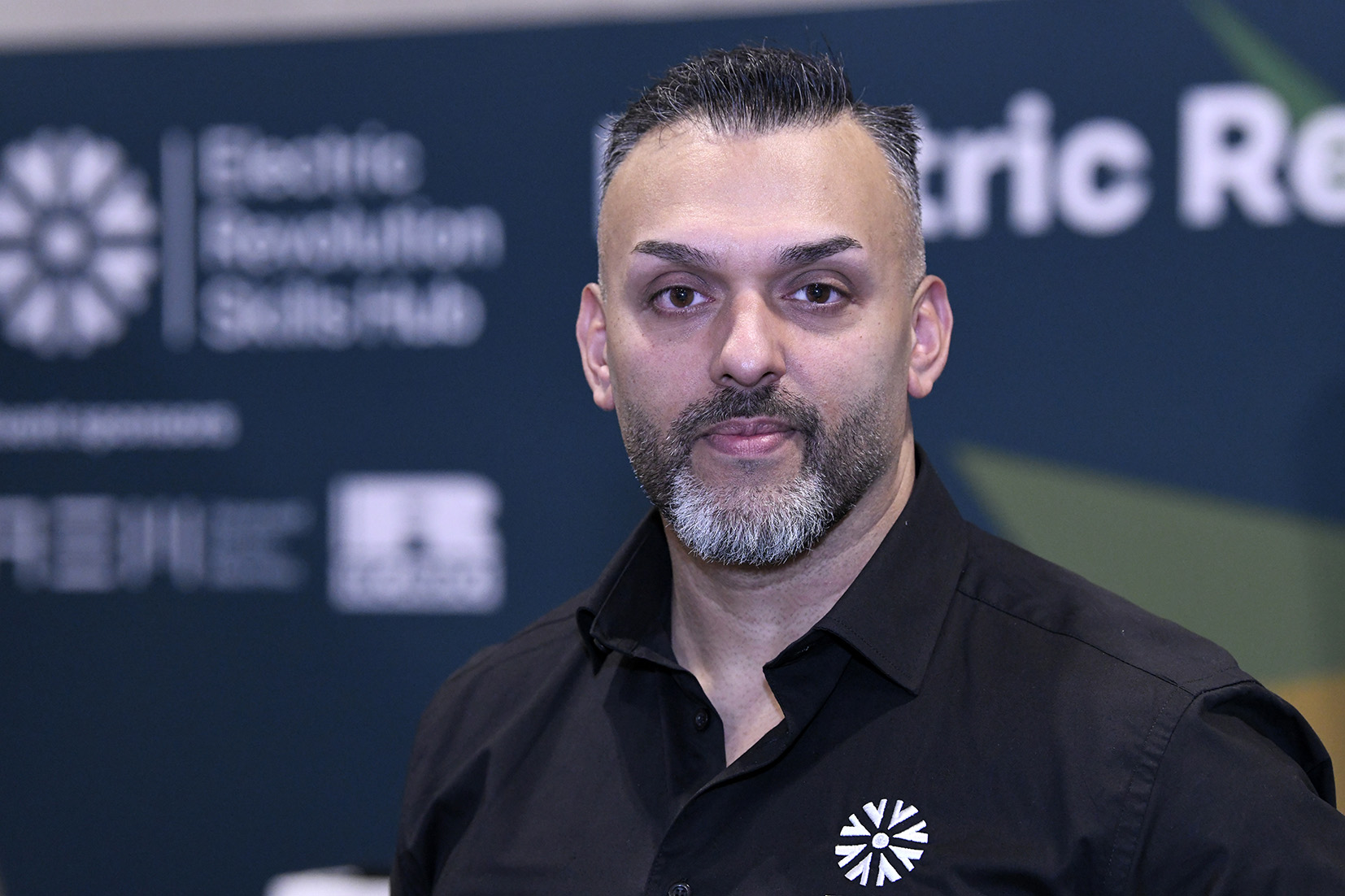
Inspiring the community
Critical to our ongoing success is the ability to inspire and bring new faces, voices and mindsets into our community.
Our Annual Conference is a fantastic way to do this, bringing together the best minds to discuss, explore, challenge and set-out future opportunities – all together in one inclusive space.
We believe exhibiting within the Advanced Engineering Show brought new people onto the journey with us, especially giving them access to interactive electrification skills workshops and keynote addresses from inspirational people like Ricardo Chief Engineer Dr Dragica Kostic-Perovic.
The former winner of Best Woman in Electrical/Mechanical Engineering Award gave a passionate talk about the power of electrification and the endless career opportunities this sector provides – if we get the skills, qualifications and pathways right!
But we’ll leave the final closing remarks on our second Annual Conference to Charlie Martin, the brilliant British racing driver and transgender rights activist who kicked things off.
“Finding your community and ‘tribe’ is essential’. We accomplish much more when we lift each other up.”
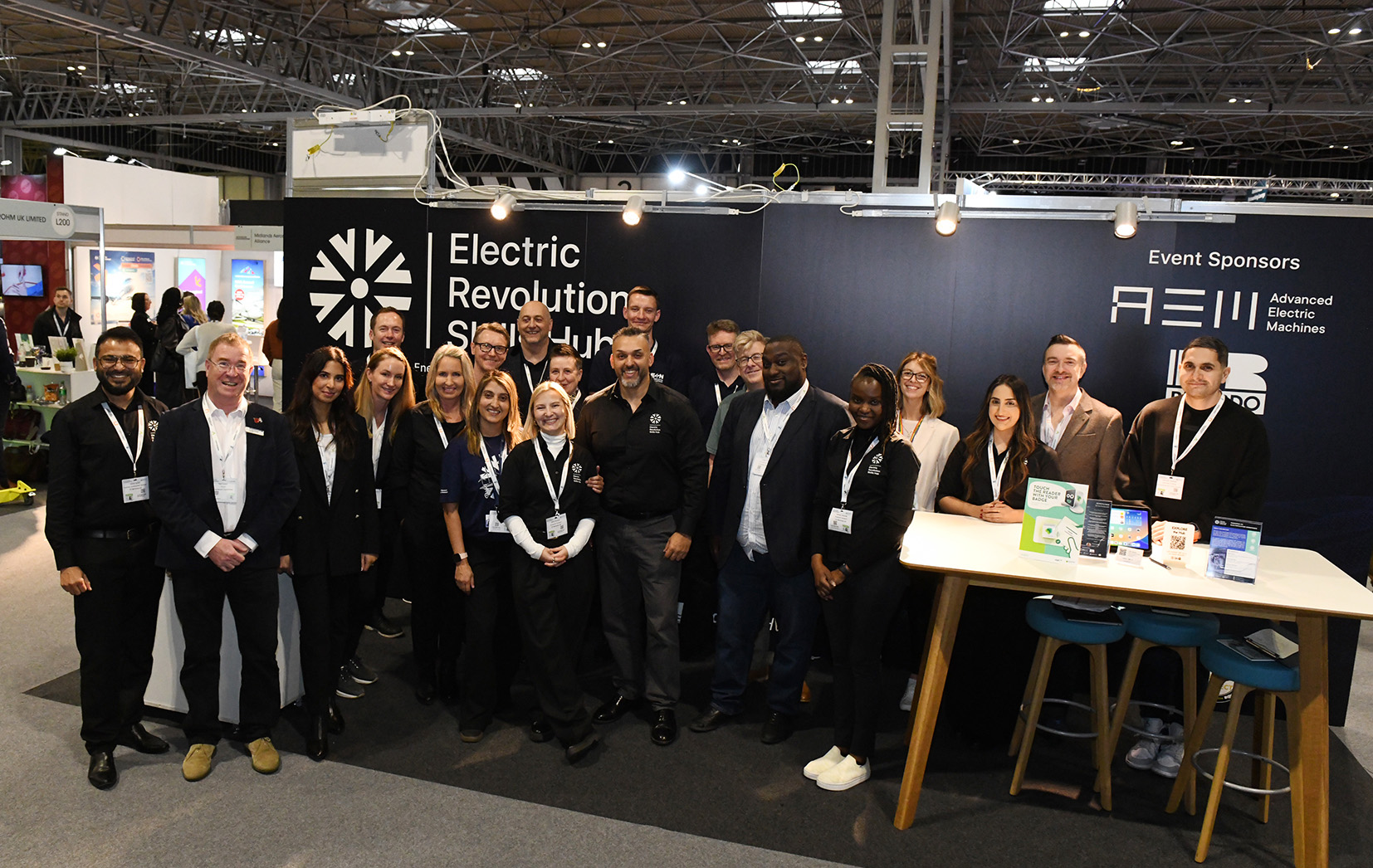
Deepak’s Takeaways from ERS Hub Second Annual Conference
Community Engagement: There was excitement on the progress of the Electric Revolution Skills Hub, with community enthusiasm highlighting a shared ambition to advance skills in the electrification sector.
Collaborative Mindset: Attendees showed strong interest in cross-industry partnerships, signalling a collaborative drive to innovate and support SMEs.
Future-Focused Learning: The discussions underscored the need for continuous learning and adaptability to new emerging technologies, aligning perfectly with our strategic vision for the ERS Hub.
Open Forum Success: Each session saw an impressive turnout. Hosting an open-access forum attracted participants from diverse backgrounds, enriching the conversations and widening the reach.
Inspirational Journeys: Innovation and technology are fuelled by people, and skill acquisition is a journey.
A big thank you to the ERS Hub Team and Community Support: I’m genuinely humbled to see a concept we once envisioned not only deliver significant impact but also bring together people and organisations in a unified effort to grow this community.

